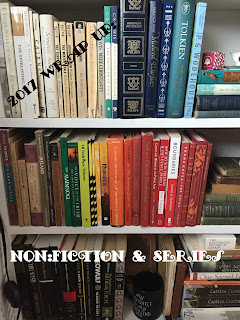For All the Tea in China: Book review
~terrariums, thievery, tea. what's not to love?~
Back in July, my mother and I took a terrarium planting class at Roosevelt's Terrariums.
In the introduction to the class, the owner told an interesting story about how terrariums (thanks to their enclosed, miniature ecosystem in a bottle capabilities) made transport of plants on old sailing ships possible; allowing a man to sneak deep into China, learn all about tea farming, smuggle a large number of tea plants out of the country, and start a tea farm in Darjeeling, effectively breaking China's tea monopoly.
I thought that it was a fascinating story, but sort of tucked it away in my head, and went on with my life.
Fast forward two months later at a gift shop, and what do I spy but For All the Tea in China, an entire book written about that tea-stealing trip?
What are the odds of hearing about a historical tidbit, only to see a book about it for sale mere months later?
What are the odds of hearing about a historical tidbit, only to see a book about it for sale mere months later?
So because it looked fascinating, I got it, read it, and loved it.
Synopsis:
19th century Victorian England was mad for tea, but China had a monopoly on production. And very few (if any) foreigners were allowed access to deep inner China.
Tea growing and production was a mystery. England's finest botanists couldn't even decide whether or not green and black tea was produced from the same plant or if it was two different species entirely.
What is the East India Trading Company to do?
Simple. Hire a botanist named Robert Fortune, send him into China to learn all the tea growing and production secrets, bring back enough plants to start tea production in the Himalayas, and commit what may be the biggest theft of protected trade secrets ever.
If Fortune can survive the pirates and revolts of China, that is.
Thoughts:
It's not so much a scholarly history book as it is a 'popular history' book, so some liberties were taken with the narrative for the sake of the story.
Nothing egregious as far as I could tell, just some minor details that have been lost to history, and presentation/dramatization.
The style is more of a winding, cozy, sit by the fire with a cup of tea story than Mission Impossible (despite the marketing).
This makes the narrative a little rocky, since the author takes the time to explain the short history of contemporary happenings.For instance, she takes the time to give a short history of the rifle used by the British infantry, or one of the many rebellions going on at the time.
Some times I thought the added context was great (I love me some context!), but other times I had to leave for work in ten minutes and just wanted to know how Fortune's fortunes were faring and sometimes got a little frustrated.
So you have been warned: it's not as fast paced as the marketing and back cover blurbs make it out to be.
That being said, Fortune does brave pirate attacks, disgruntled employees, betrayal, threats to his person, and all the dangers inherent in impersonating a native in a country that doesn't allow outsiders, so there is inherent excitement. Just not the Mission Impossible level of excitement the blurb had me expecting.
I would also like to point out how Sarah Rose blends in quotes from diaries and personal letters almost seamlessly. I only knew they were exact quotes because she put them in quotation marks for the sake of attribution, but other than that I would not have noticed. She chose her quotes with care and thought, and they fitted in the narrative seamlessly.
Length:
It's a very manageable book, in terms of size. My paperback copy is roughly 248 pages long, and the chapters run about 10ish pages each, which is a good chunk for a mornings/evenings reading (depending on reading speed) if you're short on time. Especially if you have a mug of tea or coffee on hand.
Conclusion:
I'm very proud to add this to my nonfiction shelf. It is a fairly niche subject, about a niche time period, and needs a bit of backstory for the average reader, but if you can get past that it's well worth it. Recommended for any tea lovers.
Plus it's a great conversation starter if any guest to your house happens to remark on it.
Rating:
Four stars.
Read it while you have the world's largest mug of tea and coziest blanket, and the rain is pattering against your windows.
~I prefer my tea with a healthy dose of espionage, thank you very much~



Comments
Post a Comment